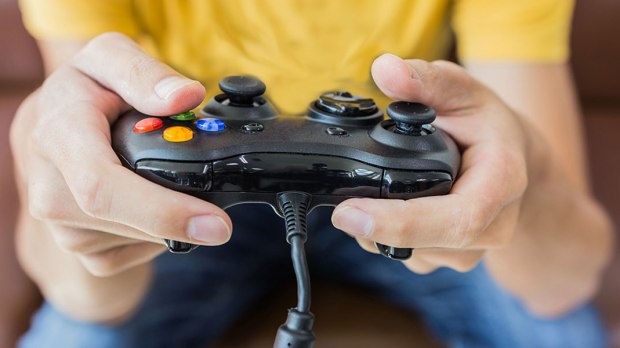In the most recent Marvel Avengers movie Infinity War, there’s a scene that all parents can probably relate to where Rocket, one of the Guardians of the Galaxy, gets all parental on a now-teenaged Groot, threatening to smash his 1980s-era handheld video game to pieces if he doesn’t dispense with the attitude and look up once in a while. It’s a funny scene, but one that rings so true. Even in our own homes, video games are almost always associated with the negative, with most of the conversations focusing on the damage they can cause to mental and physical health.
But, much as we may not like to acknowledge it, it’s not that black or white. There’s a positive side of video gaming that actually contributes to our well-being, from body control to the development of neuronal movement.
When we’re playing video games, our minds are focused on the game, the strategy, and the tactics behind solving that game. We are paying attention to the smallest detail, and that can have impressive consequences if it’s applied to our daily lives. Of course, moderation is key, and a large dose of video games can lead to negative consequences, like alienation, obesity, and poor attention span. Also, parents, we need to be careful choosing the games that are appropriate for each age, and devise a schedule to prevent overuse.
“In recent years, there have been efforts to create games to prevent health risks and treat diseases,” says Dr. Cheryl K. Olson from Harvard University, author of a study on video games. “As electronic games become a routine part of daily life, they are bound to have a wide variety of effects, both trivial and meaningful, on mental and physical health.”
Another study that looked at how the use of video games is growing as a medical tool and intervention to help patients notes that researchers are using them to train patients and clinicians physically and psychologically, to teach health education and disease self-management, to distract patients from pain, and to promote physical activity. In particular, video games as physical or psychological therapy were often very successful.
None of this is to say that you should grant your children unlimited gaming time, but here are 6 of the best scientifically proven benefits video games can have:
1. Creativity and problem-solving
Harvard’s Olson notes that video games can help children’s brain development, since many involve planning and solving problems to advance in the game. These kinds of strategies encourage kids to be more creative, to negotiate, to find new ways to achieve goals and to anticipate consequences.
At the same time, video games are becoming more customizable, which encourages players to think outside the box and create characters, landscapes and even worlds. Players are then expressing their personalities and allowing themselves to be creative.
2. Enhanced memory
Although not all types of video games have been proven to improve memory, one study shows that complex 3D video games encourage players to use their recognition memory more, and therefore improve this skill for other activities. These kinds of games require players to understand a space as if it were real, and the brain (the hippocampus) reacts with a better performance.
3. Controlling and improving dyslexia
About 10 percent of children have difficult learning to read because of a neurodevelopmental disorder; however, action video games could be an answer.
A group of children with dyslexia were given action video games as therapy to see if it would affect their reading ability. Researchers found that the kids could actually read significantly faster after playing the game. Additionally, the study showed that the kids’ attention skills were enhanced.
4. Good for ADD?
Although experts are still on the fence about recommending video games as a treatment for Attention Deficit Disorder (ADD), a few studies have shown promise.
“Children with ADD often struggle to stay focused and pay attention, and are easily distracted — except when it comes to video games,” Olson, an author of one such paper, explains. Since these children didn’t seem to have a problem concentrating on a video game for a long period of time, those who trained with a game version of a program created for their therapy stuck with training longer, improved faster, and made fewer mistakes.
The controlled use of video games has been shown to improve skills and performance, reduce impulsivity, and enhance attention.
5. Anxiety liberator
The New Jersey Medical School released a study finding that playing video games — particularly held-held types like Game Boy — helped children to focus on the game and distract themselves from a stressful situation, therefore relaxing them and and allowing them to manage difficult situations better.
Researchers gave a group of kids waiting to undergo surgery the option to play a video game instead of taking anti-anxiety meds, and the results were eye-opening.
“Over the years we have tried a number of activities from watching television, to reading stories, to using coloring books to help alleviate their stress, but none of these approaches provided enough distraction to lessen the children’s’ anxiety,” notes Dr. Henry L. Bennett, associate professor in the Department of Anesthesiology at the UMDNJ-New Jersey Medical School.
Another study suggests that, in general, video games are very powerful when it comes to managing feelings. Playing allows kids to regulate their feelings and combat boredom, loneliness, and anger. The game allows them to distract themselves from the emotional rush they are dealing with and process feelings better.
The research certainly shows that video games can be beneficial in various ways; however, the kind of game, duration of playing time, and unique makeup of a child — or adult — makes a big difference. Video games are better used when they’re a family activity, because parents can then lead the game towards an educational opportunity, with the added element of fun.

Read more:
6 Take-aways from a dad in the video game industry

